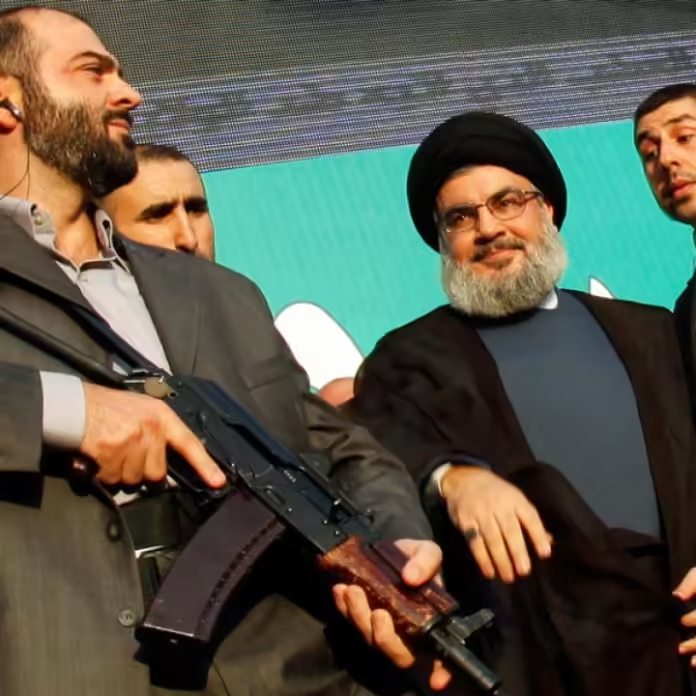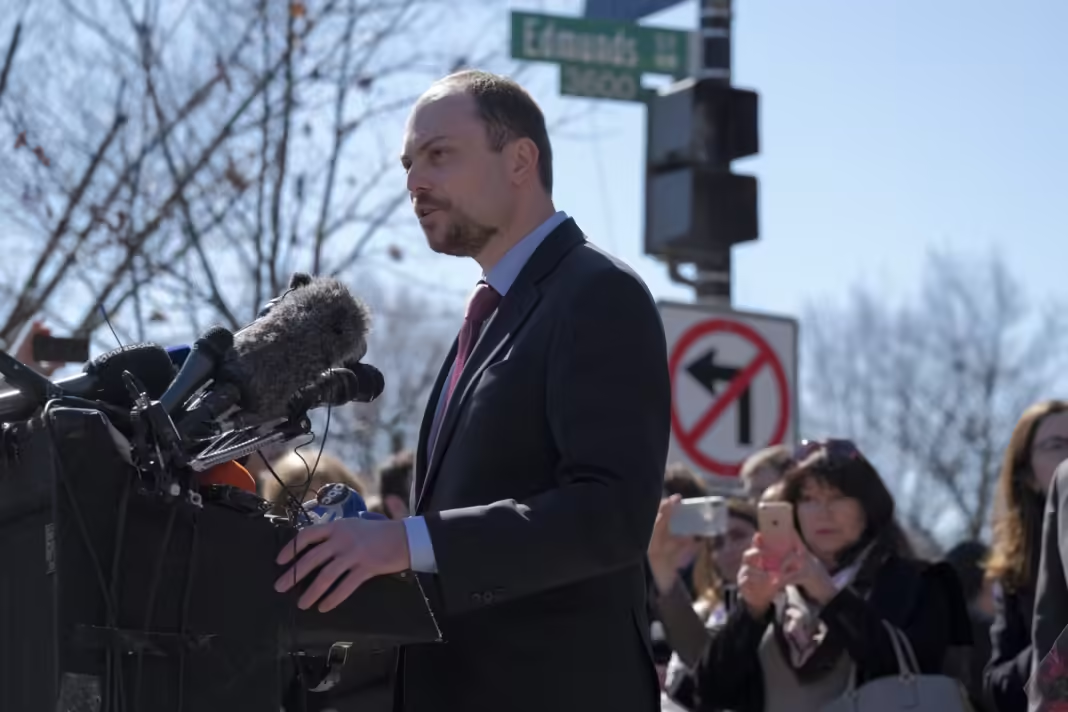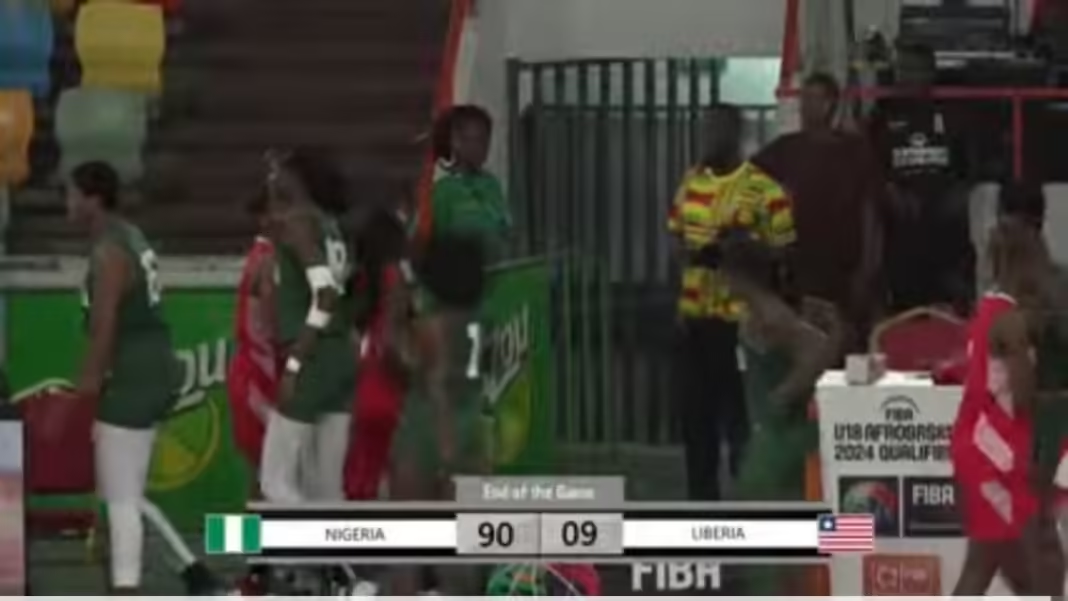This week’s targeted strike on Fuad Shukr was a big blow to Hezbollah and Iran’s Islamic Revolutionary Guards Corps (IRGC). Not only did they lose their most valuable militia commander during the current phase of escalation with Israel, they also confirmed just how exposed the group is to Israel’s intelligence apparatus. Even as Hezbollah was still looking for Shukr’s body among the rubble, Hamas political leader Ismael Haniyeh was killed by an attack in Tehran, further heightening the stakes and increasing the pressure for a response.
Yet Hezbollah’s intelligence vulnerabilities and Israel’s growing boldness could also have the opposite effect, prompting the group and its allies to think twice about whether and how they will escalate. This dilemma—which was noticeable in Hezbollah leader Hassan Nasrallah’s speech earlier today—should inform the U.S. response to the latest crisis brewing between Israel and the Iranian “axis.”
What Did Nasrallah Say?
When Nasrallah delivered a televised speech during Shukr’s funeral in Beirut, he promised a military response of some sort but did not say that it will be coordinated with other actors such as the IRGC or the Yemeni Houthis. In fact, he seemed to deliberately avoid making that link or even mentioning Haniyeh’s assassination and Iran’s potential response. Although he spoke of a “new phase of the conflict where all fronts will be open to war,” he also made clear that a decision on how to retaliate has not been made yet: “We are angry, but we are wise. Our response could come from anywhere and anytime…We are searching for a response that is both strong and calculated.”
Perhaps most tellingly, Nasrallah noted that Hezbollah will go back to the usual “rules of engagement” along the border with Israel the next day, reiterating that their months-long clashes will not stop until a ceasefire is reached with Hamas in the Gaza Strip. In a sense, then, he gave the international community a glaring reason to redouble its efforts toward a Gaza hostage deal. Does this mean Hezbollah is deterred, or is a response still coming? Multiple factors and calculations will determine the answer.
Response Scenarios
In the days leading up to Israel’s strike, Hezbollah’s first instinct was to falsely deny responsibility for its tragic July 27 rocket attack on Majdal Shams, presumably in the hope of sparing itself from a near-certain military response for killing civilians. When this gambit seemed destined to fail, Hezbollah prodded Lebanese foreign minister Abdallah Bou Habib to tell interviewers on July 28 that the group was willing to withdraw its military formations north of the Litani River. Previously, Hezbollah had refused to negotiate on this point—a core requirement of UN Security Council Resolution 1701—or discuss any other border demarcation issues until a ceasefire is reached in Gaza.
Shortly before Shukr was hit, the group’s messaging changed yet again, spelling out a formula for how Hezbollah would respond to specific attacks and drawing a few red lines for Israel. Specifically, the group warned that a strike that harmed Lebanese civilians would be met with a strike against Israeli civilians; a strike on Beirut would be met with a strike against Tel Aviv; a strike against the group’s Dahiya stronghold would be met with a strike against an Israeli city; and a strike on Beirut’s airport would be met with a strike on Israel’s Ben Gurion Airport. The group added that any attacks against military targets would prompt Hezbollah to attack Israeli military targets.
One can assume that these warnings were intended more as deterrence messaging than as a blueprint for the military strategy Hezbollah will actually implement. Coupled with Nasrallah’s speech, however, they indicate that two scenarios are most likely.
The first is a delayed response, meaning Hezbollah would add Shukr’s death to the long list of Israeli offenses for which it has promised eventual retaliation. Alternatively, the group may decide to act right away by hitting a military target deeper inside Israel rather than confining its attacks to the north or the Golan Heights. This option would allow Hezbollah to register a distinct response to the Beirut strike without crossing the threshold it believes would lead to all-out war. A related option is to launch attacks involving more advanced weapons. For example, Shukr oversaw the IRGC’s precision-guided missile program, so Hezbollah and Tehran could decide to use such munitions against Israeli military targets for the first time.
Whichever option it chooses, nothing has drastically changed in Hezbollah’s calculations. The group still cannot afford all-out war with Israel—as Nasrallah has repeatedly stated since last year, the Gaza war is not their war. Moreover, Tehran still wants to preserve Hezbollah’s advanced weapons and most valuable military assets as an insurance policy. As long as the Iranian regime and its nuclear program are not under direct threat, the group will not be asked to sacrifice its top assets in a showdown with Israel. Losing Shukr and hundreds of other commanders and fighters to Israeli strikes has been a severe test for Hezbollah in the past few months, but total war in Lebanon would increase the damage exponentially. Without Shukr and other slain military planners, the group may not even be able to achieve the defensive “victory” it notched during the previous war in 2006. And if by chance it survived the next war, it would lose all of its advanced weapons and be forced to rebuild its massive arsenal in a much worse economic and budgetary environment than 2006.
Although Shukr was a big loss—certainly bigger than Haniyeh—both Hezbollah and the IRGC seem to view it as a tolerable cost of maintaining pressure on Israel. Each of them has suffered high-profile losses in the past without major military retaliation against the United States or Israel, including former Hezbollah secretary-general Abbas Musawi, military commanders Imad Mughniyah and Mustafa Badreddine, and IRGC Qods Force leader Qasem Soleimani. Notably, however, both parties did eventually answer some of these leadership strikes in deadly fashion, including a ballistic missile strike on American forces in Iraq and a mass-casualty terrorist bombing in Argentina.
Regardless of how Hezbollah tailors its specific response, the group is clearly desperate to stop the greater losses it has suffered during the Gaza war. This desperation creates big diplomatic opportunities for the United States and its partners—if done right.
A Chance for Diplomacy?
When Hezbollah indicated its willingness to withdraw north of the Litani, it was probably bluffing—after all, Resolution 1701 cannot be implemented without a viable enforcement mechanism. Yet the message does suggest that the group will compromise if it fears that more serious pressure will be brought to bear.
In the immediate term, a limited military response against Israel seems likely—one that Hezbollah and Tehran hope Jerusalem will tolerate. After that, however, the latest spike in the conflict could pass, since the group now knows that Israeli leaders are willing to cross its red lines. This period of caution is where diplomacy could play an important role:
- The United States should warn Hezbollah that if it does not agree to a diplomatic solution soon, then Israel is ready to hit additional senior targets. Crucially, Washington should make clear that a Lebanon deal must proceed regardless of what happens with the repeatedly delayed Gaza negotiations.
- Hezbollah officials believe that the United States and Israel are aligning their recent military actions to a certain extent—American forces reportedly hit Iran-backed militia targets in Iraq at least twice after the attacks on Shukr and Haniyeh, and the Biden administration has publicly reassured Israel that it will receive U.S. support if attacked. This perceived alignment is perhaps the strongest deterrent Washington has against Hezbollah escalation, so it should reinforce this view as much as possible, at least until a ceasefire is reached.
- The U.S. Navy recently sent multiple warships close to Lebanon’s waters, and some of them should be kept there even if this tense episode passes. Such deployments serve as a very strong symbolic “no” to Hezbollah.
- To increase Hezbollah’s fears of U.S.-Israeli alignment, Washington should try to enlist partners such as France and Saudi Arabia to heighten the deterrent effect. For instance, Paris could use its leverage in Beirut to put more pressure on Hezbollah’s domestic allies via tough diplomacy and sanctions. And although the Saudis largely disengaged from Lebanon years ago, they might be convinced to reenter the scene if Washington reminds them that Hezbollah has been filling the void with its own Sunni allies and bad actors like Hamas.
- If negotiations with Hezbollah proceed, the United States should put more pressure on the group’s many weak points, including its exposure to Israel’s intelligence; its substantial loss of commanders, infrastructure, and weapons facilities; and the social pressure it faces from displaced residents of southern Lebanon. In particular, Washington should impose more sanctions on Hezbollah’s Lebanese political allies, push Beirut to fill the long-vacant presidency with someone who is actually willing to help the country regain its sovereignty from Iran, and, most important, ensure that the Central Bank and other Lebanese financial institutions are helping to obstruct Hezbollah’s cash flow.
- To ensure that a ceasefire does not simply enable Hezbollah to replenish its fighting forces and command structure, Washington and its partners need to address the routes and entry points the group uses for weapons smuggling. This means enforcing Security Council Resolution 1559, demarcating the border with Syria, and monitoring seaports and Beirut’s airport. Moreover, the presidential vacuum needs to be filled so that Beirut can establish the functioning government necessary to overseeing all of the above.
If diplomacy succeeds in reaching a ceasefire in Lebanon, officials should not stop there. Longer-term policy options should be developed and pursued to restore Lebanon’s sovereignty in war and peace decisions and prevent Hezbollah from regaining its strength and confidence. Merely implementing Resolution 1701 is not enough—it must be followed up with sustained political, economic, and security pressure on Hezbollah, its Lebanese political allies, and its regional partners.
By Hanin Ghaddar
Hanin Ghaddar is the Friedmann Senior Fellow at The Washington Institute and co-creator of its interactive map tracking clashes along the Israel-Lebanon border.




